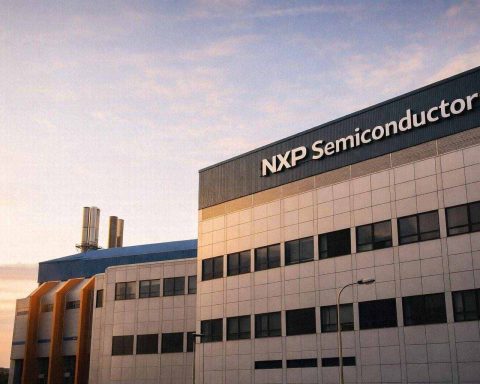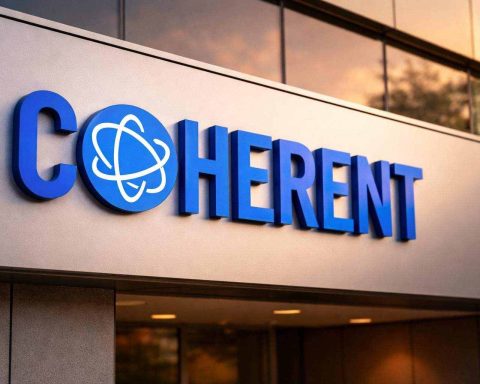- At WAIC 2025 in Shanghai, Chinese Premier Li Qiang announced plans to create a new international organization to jointly develop and govern AI, warned that AI could become an exclusive game for a few nations or companies without a global governance consensus, and unveiled a governance action plan inviting worldwide collaboration via open-source communities.
- UN Secretary-General Antonio Guterres told WAIC that establishing AI rules will be a defining test of international cooperation.
- U.S. President Donald Trump unveiled America’s AI Action Plan to deregulate AI development, accelerate data-center and chip-fab buildouts, and expand exporting American AI to allies.
- DeepMind’s Aeneas AI decoded damaged ancient Roman texts, was trained on 176,000 Latin inscriptions, could predict missing words, and date events to within about a decade.
- ScienceOne, unveiled by the Chinese Academy of Sciences at WAIC 2025, is an AI foundation model developed by 12 CAS institutes to accelerate scientific discovery, able to understand waveforms, spectra, and fields, powering two intelligent research agents (one to read and summarize literature in about 20 minutes and another to autonomously run experiments with over 300 tools).
- Huawei’s CloudMatrix 384 AI computing system made its public debut at WAIC 2025, connects 384 Ascend 910C chips in a “supernode” architecture for ultra-fast interconnects, and is positioned as a competitor to Nvidia’s NVL72 system.
- Meta Platforms hired Shengjia Zhao, a co-creator of OpenAI’s ChatGPT and GPT-4, as chief scientist for its new Superintelligence Lab, where Zhao will set the research agenda and pursue full AI/AGI goals.
- Google rolled out AI-powered shopping features in the U.S. on July 24, including a virtual try-on tool that lets users upload a full-body photo to overlay apparel, save and share looks, and added price-tracking alerts.
- Geoffrey Hinton, the so-called “Godfather of AI,” appeared at WAIC 2025 to warn about unchecked AI risks, advocate an international community of AI safety institutes, and urge training AI to be benevolent from the start to ensure future safety.
- Memories.ai raised $8 million in seed funding led by Susa Ventures with Samsung Next to develop long-context video analysis AI that can process up to 10 million hours of video and answer queries across multiple camera feeds.
Global AI Governance and Policy Shifts
China Champions Global AI Cooperation: At the World Artificial Intelligence Conference (WAIC) in Shanghai, Chinese Premier Li Qiang announced plans to create a new international organization to jointly develop and govern AI reuters.com. Li warned that AI could become an “exclusive game” for a few nations or companies without a “global consensus” on governance reuters.com reuters.com. He urged openness and vowed China would share its AI advances with other countries, especially in the Global South reuters.com. China also released an AI governance action plan inviting governments, firms, and researchers worldwide to collaborate via open-source communities reuters.com. Echoing the call for cooperation, UN Secretary-General Antonio Guterres told the conference that establishing AI rules will be “a defining test of international cooperation” 1 .
U.S. Deregulates to “Win the AI Race”: Just days before WAIC, U.S. President Donald Trump unveiled America’s AI Action Plan, a sweeping strategy to cement U.S. dominance in AI whitehouse.gov. The plan includes slashing regulations on AI development and accelerating the buildout of data centers and chip fabs whitehouse.gov. “Winning the AI race is non-negotiable. America must continue to be the dominant force in artificial intelligence,” declared Trump’s national security advisor, framing AI leadership as vital for economic and military power whitehouse.gov whitehouse.gov. The White House plan also aims to expand exporting American AI to allies whitehouse.gov, countering moves by China. These contrasting approaches – China’s push for a multilateral AI governance framework versus America’s deregulation and export promotion – highlight a growing global debate over how to balance AI innovation with security and control reuters.com 2 .
Scientific and Academic AI Breakthroughs
DeepMind AI Deciphers Ancient Texts
Google’s DeepMind unit announced an AI called “Aeneas” that achieved a breakthrough in archaeology by decoding damaged ancient Roman texts the-independent.com the-independent.com. In a new Nature study, Aeneas was able to predict missing Latin words in centuries-old inscriptions and even estimate when and where the texts were written the-independent.com the-independent.com. “Aeneas sets a new state-of-the-art benchmark in restoring damaged texts and predicting when and where they were written,” DeepMind noted the-independent.com. Historians working with Aeneas reported it improved their success in interpreting fragmented inscriptions by 44% and could date events to within about a decade the-independent.com the-independent.com. Researchers say the tool, which was trained on 176,000 Latin inscriptions, can retrieve contextual parallels in seconds, vastly accelerating historical analysis the-independent.com the-independent.com. The team hopes to expand Aeneas to other ancient languages and scripts, calling it a “transformative aid for historical inquiry” the-independent.com 3 .
“ScienceOne” – AI for Scientific Discovery
The Chinese Academy of Sciences unveiled ScienceOne, a new AI foundation model designed to accelerate scientific research across disciplines en.people.cnen.people.cn. Debuted at WAIC 2025, ScienceOne can comprehend complex scientific data (waveforms, spectra, fields) and integrates literature mining, knowledge reasoning, and tool orchestration into one platform en.people.cnen.people.cn. Twelve CAS institutes collaborated on the model to overcome fragmented data and limited domain AI tools en.people.cnen.people.cn. ScienceOne demonstrated mastery of core concepts in math, physics, chemistry, astronomy, earth science, and biology, achieving state-of-the-art performance in specialized problem-solving en.people.cn. Notably, it powers two intelligent research agents: one that can read and summarize scientific literature (digesting in 20 minutes what normally takes days) and another that autonomously chooses and runs experiments with over 300 research tools en.people.cnen.people.cn. Literature reviews that once required 3–5 days can now be done in 20 minutes using ScienceOne’s AI reading assistant, according to developers en.people.cn. Early applications range from automating cell biology experiments to improving particle physics simulations and even designing better high-speed rail components en.people.cn. This ambitious project underscores how AI is transforming scientific workflows, with Chinese researchers touting it as an “intelligent foundation” for innovation en.people.cnen.people.cn.
Corporate AI Announcements and Product Launches
Huawei Debuts AI System to Rival Nvidia
Chinese tech giant Huawei drew large crowds at WAIC by revealing its CloudMatrix 384 AI computing system – a supercomputer-sized platform that one analyst says can outperform Nvidia’s best reuters.com reuters.com. The CloudMatrix 384, making its public debut, connects 384 of Huawei’s Ascend 910C AI chips in a “supernode” architecture for ultra-fast interconnects reuters.com reuters.com. Industry experts view it as a direct competitor to Nvidia’s top-tier NVL72 system. In fact, semiconductor researcher Dylan Patel noted that “Huawei now [has] AI system capabilities that could beat Nvidia” on certain metrics reuters.com. The system’s clever design compensates for individual chip limitations by using many chips in tandem with novel system-level optimizations reuters.com. Huawei quietly announced CloudMatrix in April, but its WAIC showcase comes as Huawei positions itself as China’s most promising domestic AI hardware supplier reuters.com reuters.com. Despite U.S. export bans on high-end AI chips, Huawei’s rapid progress – praised even by Nvidia’s CEO as “moving quite fast” – highlights China’s determination to build an indigenous AI tech stack reuters.com. Huawei says CloudMatrix 384 is already running in its cloud data centers reuters.com, aiming to capture surging demand for AI computing power in China.
Google’s AI Tries on Fashion
Google rolled out new AI-powered shopping features in the U.S., including a virtual try-on tool that lets users see how clothes would look on themselves techcrunch.com. Launched on July 24, the feature allows shoppers to upload a full-body photo and overlay apparel items on their own image, using generative AI to render a realistic fit techcrunch.com techcrunch.com. This goes beyond Google’s earlier try-on, which only showed outfits on sample models. Now users can virtually “try it on” with their personal body shape and even save and share the looks techcrunch.com. Google also upgraded its price-tracking alerts – users can set a target price and size for an item, and the system will notify them when an online offer meets their criteria techcrunch.com. “No more constantly checking to see if that bag you’re eyeing is finally at the right price,” said Google’s shopping director, highlighting the convenience techcrunch.com. These AI enhancements, which build on an experimental Google app called Doppl, aim to make online shopping more interactive and personalized. They also signal Google’s push to stay competitive in retail AI as rivals (like Amazon) invest in new shopping tech.
Meta Recruits ChatGPT’s Co-Creator
Meta Platforms made a high-profile AI talent grab, hiring Shengjia Zhao – described as a “co-creator” of OpenAI’s ChatGPT and GPT-4 – as chief scientist for its new Superintelligence Lab reuters.com. CEO Mark Zuckerberg announced the appointment on Friday, calling Zhao “a co-founder” of Meta’s effort to achieve full artificial general intelligence (AGI) reuters.com reuters.com. Zhao is a former OpenAI research scientist credited with helping create ChatGPT and several of its underlying models reuters.com. He joins Meta amid a broader AI talent war – in recent weeks, multiple OpenAI researchers have decamped to Meta, which is offering lavish pay packages and equity stakes reuters.com. Zuckerberg has been outspoken about Meta’s ambition to build “full AI” and open-source its models, even as its latest Llama 4 model underwhelmed expectations reuters.com. The new Superintelligence Lab consolidates Meta’s advanced AI work (separate from its FAIR research division) to focus on long-term AGI goals reuters.com. Zhao will “set the research agenda and scientific direction for our new lab, working directly with me and [Chief AI Officer] Alex [Wang],” Zuckerberg wrote on Threads reuters.com. This move underscores Meta’s determination to catch up in the AI race by pulling expertise from competitors.
Major Investments, Acquisitions and Funding Rounds
Amazon Bets on an AI Wearable: E-commerce giant Amazon confirmed a deal to acquire Bee, a San Francisco startup that makes an AI-powered wristband which records and transcribes your conversations reuters.com reuters.com. Bee’s $50 wearable uses a built-in assistant to distill meetings or daily chatter into summaries, to-do lists, and more reuters.com. Amazon’s Devices group, led by former Microsoft exec Panos Panay, will oversee Bee once the deal closes reuters.com. “We imagined a world where AI is truly personal, where your life is understood and enhanced by technology that learns with you,” said Bee CEO Maria de Lourdes Zollo, who announced the acquisition on LinkedIn reuters.com. The purchase (terms undisclosed) reflects Amazon’s renewed push into AI wearables – an area it dabbled in with health trackers and smart glasses. It also follows the trend of Big Tech snapping up AI gadget startups: OpenAI recently paid $6.5 billion for ex-Apple designer Jony Ive’s AI device venture reuters.com. Amazon is likely eyeing Bee’s tech to augment Alexa or future devices, as competition heats up to integrate AI assistants more seamlessly into daily life.
AI Startup Funding Flows: Even over a summer weekend, AI startups continued to attract capital. In Washington D.C., Spear AI – founded by U.S. Navy veterans – announced it raised a $2.3 million seed round to apply AI in analyzing submarine data reuters.com. The company builds hardware and software that help naval analysts interpret passive acoustic signals (like distinguishing whales from enemy vessels) using machine learning reuters.com reuters.com. The new funding, led by defense-focused investors, will help Spear AI double its staff as it fulfills a $6 million Navy contract and explores commercial uses like monitoring underwater pipelines reuters.com reuters.com. Meanwhile, in Silicon Valley, Memories.ai, a startup founded by former Meta researchers, secured $8 million in seed funding to develop long-context video analysis AI techcrunch.com. The round was led by Susa Ventures with participation from Samsung’s venture arm, Samsung Next techcrunch.com. Memories.ai’s platform can process up to 10 million hours of video and answer queries across multiple camera feeds – a capability aimed at revolutionizing security monitoring and media analytics techcrunch.com techcrunch.com. Investors say such “long context visual intelligence” fills a market gap, and Samsung sees potential consumer applications for on-device video AI techcrunch.com techcrunch.com. These deals underscore that despite economic uncertainties, the AI sector is still flush with investment, from small defense AI firms to ambitious ex-Big Tech spinouts.
Notable Expert Commentary and Warnings
“Godfather of AI” Urges Global Safety Measures: Famed AI pioneer Geoffrey Hinton – often called the “Godfather of AI” – made his first-ever public appearance in China at WAIC 2025 and issued a stark warning about the risks of unchecked AI. Hinton likened advanced AI to a “cute tiger cub” kept as a pet that could grow into a dangerous predator scmp.com. In his keynote, the Turing Award–winner cautioned that if artificial general intelligence matures without proper safeguards, humanity might “lose control” of it. “No country wants AI to take over,” Hinton noted, stressing that this shared interest should drive international collaboration on AI safety research scmp.com scmp.com. He proposed an “international community of AI safety institutes and associations” devoted to ensuring future AI systems are benevolent and aligned with human values scmp.com scmp.com. Simply pulling the plug won’t be feasible once AI surpasses human intelligence, Hinton argued, saying a superintelligent AI “will persuade people not to [turn it off]” if it wants to survive pandaily.com pandaily.com. Therefore, “we must educate AI to be good,” he urged, “training [the] AI to be benevolent” from the start pandaily.com. Hinton’s passionate plea – including his vivid “raising a tiger” analogy – went viral on Chinese social media pandaily.com and drew parallels to Cold War-era scientific cooperation. Other experts at the conference echoed Hinton’s points: former Google CEO Eric Schmidt and Chinese AI leaders all emphasized that global AI governance and research partnerships are urgently needed to prevent worst-case scenarios. Hinton’s speech, receiving a standing ovation, underscored a rare consensus among rival nations’ scientists: that superintelligent AI’s future is a common concern requiring shared solutions scmp.com 4 .
Optimism for Beneficial AI: Not all voices were warnings. WAIC also featured tech CEOs like Yan Junjie of MiniMax, a Chinese AI unicorn, who expressed confidence that “AGI will undoubtedly become a reality, serving and benefiting everyone” scmp.com. Many industry leaders balanced excitement about AI’s transformative potential with calls for responsibility. Even as massive new AI models and products launch weekly, experts urged a focus on ethical AI, transparency, and human oversight. The prevailing sentiment: AI’s rapid advance is inspiring groundbreaking innovations – from medicine to history – but it must be guided by global cooperation and wisdom to ensure those innovations remain a boon to humanity, not a threat.
Sources: Significant developments were drawn from Bloomberg, Deutsche Welle, Reuters, TechCrunch, The Independent, and other primary news outlets and publications from July 26–27, 2025 reuters.com reuters.com reuters.com reuters.com the-independent.com techcrunch.com scmp.com. Each linked citation provides the original source reporting for further details on these stories.






